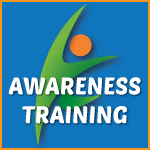What happens when you diet too much?
Metabolic Adaptation
Think of your body as an advanced form machinery, one that is capable of responding to it’s environment automatically. An example is when the hot summer sun is beating down on you; your body responds by producing sweat in an effort to cool down. Now let’s say you are living in ancient days of hunters and gatherers and you experience a famine where food becomes scarce and you are not sure when the next meal will be. Your body has a very interesting way of keeping you alive and that is by slowing down your metabolism.
A slow metabolism isn’t a bad thing to have when you are trying to make it through another day in the jungle without food, but for the average person in modern times where food is not only abundant but oh so delicious, this can make gaining weight, well, a little too easy.
What you will find is that this adaptation is what the average weight loss seeker will experience in there first attempts doing diets that call for severe calorie restriction and participating in high intensity exercise programs. Quick weight loss is followed by rapid weight gain shortly after, leading to feelings of frustration and disappointment.
What is worse is that every time the individual repeats this cycle, the more they are instilling that famine consciousnesses at a cellular level. This tends to be more prevalent in females do to differences in biological and physiological makeup, you can read more about this in the book Outsmarting the Female Fat Cell by Debora Waterhouse.
What to do if you have been on multiple diets
1. First thing that I establish with my clients who have been on low calorie eating plans in the past and are prone to skipping meals, is we want to become consistent in having meals at regular times throughout the day. By doing so we are making sure that the body is well fed and can predict when the next meal will be. Frequently skipping meals can lead to an increase in fat storing enzymes in the body, this is something we want to avoid if long term weight loss is our goal.
2. Second, and this can be a challenging concept to grasp, but you have to get comfortable knowing that the scale either won’t move or you may go up in weight in the beginning. This depends again on how many attempted diets one has been on. This is why it is important to focus on other health markers besides the scale (the scale although helpful, is one of my least favorite tools to go by) We can look at strength, how strong you are getting in your lifts. We can look at energy levels, are you quicker to get with it in the morning? Digestion, how well are you able to digest and eliminate food?
3. Lastly, you must refrain from participating in restrictive calorie diets, especially if you are coupling that with an intense exercise program. Developing a healthy relationship with foods means that you eat in a way that supports your activity levels for the day and leaves you feeling satiated. A great rule of thumb, if you are hungry, listen to your body, eat!
By eating at regular times throughout the day and providing the body with nutrient dense whole foods, anyone who has gone through the trial and error days of yo-yo diets can rest assured knowing they can convince their bodies that it isn’t in a state of famine and experience a fully functional metabolism, one that supports them in their daily life, whatever that may look like.
I hope you found this article helpful. What lessons can you use to apply to your life? If you have any friends you think would benefit from reading this article I would love if you could share it with them, they will sure to appreciate it, I know I will!
In good health,
– Ray Martinez
Chek Exercise Coach
